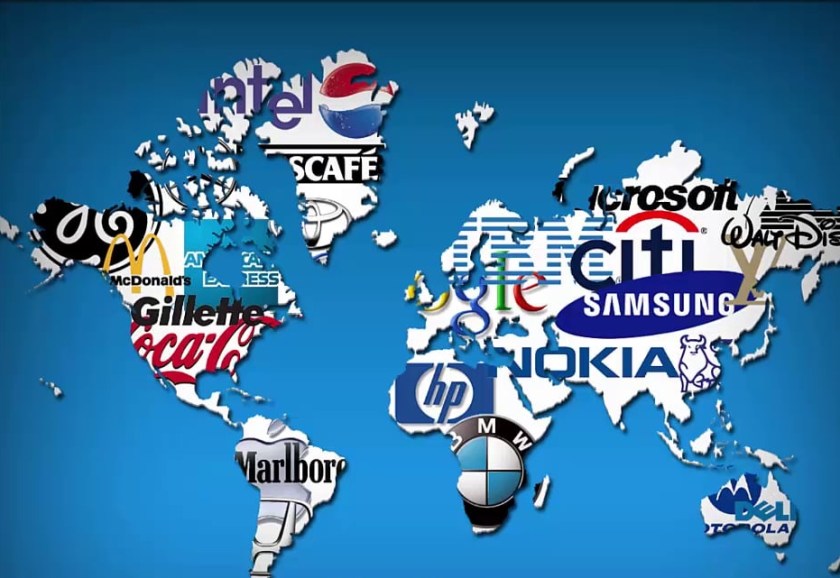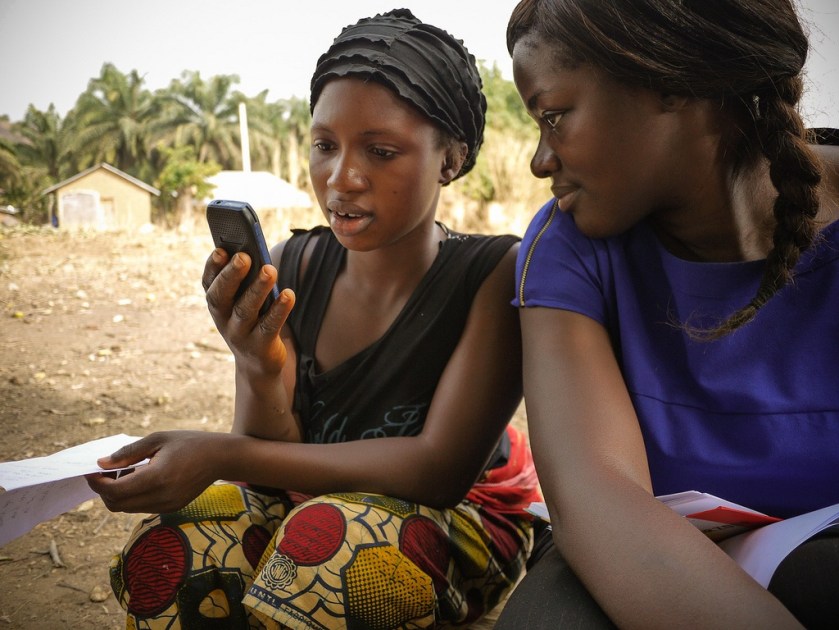Cross-cultural management studies appears to be stuck in a time warp, still largely influences by the cultural comparison school of thought. The ‘modern’ turn away from this school appears to be various examinations of how managers can be good at managing across cultures (e.g. cultural intelligence, cultural competences). Sometimes processes are examined such as cultural crossvergence (Prime, Love and Shaffer, 2010), with little evidence that this represents anything other than a cosy interaction between different ‘cultures’, and appears to completely ignore power relations (Jackson, 2011).
Management Studies is generally a conservative activity: we represent the interests of (mainly Minority World) corporates to perform better at managing internationally.

Our little academic realm within this (cross-cultural management studies) rarely looks outside this. As a result our scholarship is missing huge amounts of knowledge and understanding, both in time and space.
As such, it is not able to cope with diversity, both in terms of knowledge diversity, and the way it treats, for example, race and gender diversity.
What is missing spatially?
In terms of space, we tend to focus on the Minority World. The Majority World (often referred to by the derogatory term ‘Developing”) comprises about 80% of the World’s landmass (Punnett, 2004). The importance of this huge area is what happens differently here to the 20% on which we tend to focus.
A large proportion of what we are missing can be terms ‘indigenous’. According to Peredo and McLean (2010) indigenousness is a majority view, with an estimated 300-500 million people occupying around 20% of the world’s landmass. Rather than the prevailing assumption where this is considered in the international management literature (e.g. Tsui, 2004) indigenousness does not just mean ‘local’. It is a function of power and colonisation (Smith, 1999). It is marginalized within mainstream knowledge and culture (Wiessner, 1999). It is dynamic rather than a static artefact (Briggs and Sharp, 2004) constantly producing new knowledge and social forms within a changing cultural interface (Jackson, 2011). It is also a political concept (Smith, 1999) and probably a reason why it is avoided by mainstream international and cross-cultural management scholars (Jackson, 2013, has suggested such scholars use ‘endogenous’ instead, if they want to stay safe from politics).
The under-representation of indigenous knowledge in management scholarship leads to a lack of diversity in terms of:
- Knowledge sources (what do we know and how do we know it?)
- Idea- and concept-generation (how do we think about what we know and how do we formulate this into theories and knowledge?)
- Consequences and impact on diverse communities within a global world (are our theories and subsequent practices appropriate to the diverse organizational and social communities with which businesses and international managers come into contact?).
Jackson (2013) has identified the informal economy as a major site for indigenous knowledge and practice, and quotes Cheru (2002: 48-9) as saying the informal economy is “.. a dynamic and enduring force that has shaped African cities”, representing “..an alternative society, with parallel social and religious institutions alongside the official ones” and “..a node of resistance and defiance against state domination”. Again, the under-representation (if not completely ignoring) of this part of the world economy in cross-cultural management studies is surprising, as the informal economy forms a huge percentage of total economies in the Majority World. It represents 82% of total employment in South Asia and 72% in sub-Saharan Africa. In the latter 74% of all women in non-agricultural trades are employed or run their own firms in the informal economy. For South Asia the figure is 83%. Cross-cultural management scholars could learn much here (e.g. leadership)
Communities in the informal economy are often persecuted or ignored. Their voice is weak and they have little influence over policy that affects them. Being ignored by management scholars is probably the least of their problems, yet this is a huge omission from our scholarship, and from our attempts to understand knowledge in the global arena.
What is missing temporally
In terms of what cross-cultural management scholarship is missing temporally, our sub-discipline appears to be ignoring global power dynamics (Jackson, 2011; 2012; 2014): the way the world is changing and the implications for what we study and how we study it. The way the World looks today has been the result of the geopolitical dynamics of imperialism and colonialism.

These dynamics are changing. Ancient civilisations are again coming to the fore (e.g. China, India). Former colonies are taking over organizations and acquiring huge investments in the countries of the former colonisers. Former dominant economies that shaped the world are now being shaped by countries of the global South. Changing geopolitics has the potential to change and reshape knowledge, including management knowledge (Jackson, 2012). Even critical international and cross-cultural management scholars who have engaged with such ideas as Postcolonial Theory (e.g. Jack and Westwood, 2009), a theory sited in place and time, are now out of time and out of place (by about 20 years). New (critical) theories must be developed to cope with the new geopolitical landscape, one which is dependent not on North-South interaction (or West-East), but South on South interactions, which are quite different and have different antecedents and dependencies such as those involving China or India in Africa (Jackson, 2012). Postcolonial Theory (PCT) is proficient at analysing North-South dynamics and dependences, but to use this analysis on, for example China in Africa relationships is erroneous. At the same time PCT is very much a Western theory, despite its Eastern variants. Now it is necessary to turn our scholarship to looking at what affects will China’s dominance in the world have on management and organizational knowledge?

Yet, there is another aspect that cross-cultural management scholarship appear to ignore in time: the effect of changing technology on communication, knowledge and culture. This connects fundamentally to the integration of indigenous and Majority World cultures, knowledge and practice into our scholarship, and connects to the way we can view indigeneity as a dynamic, rather than a static artefact. The problem of its weak voice and agency may also be overcome by such changes (Jackson, 2013).

This is because the nature of knowledge appears to be changing through the opposition of two trends:
- A tendency towards more elitism in scholarly knowledge. Scholarship itself, increasingly, is considered the preserve of academic elites, mostly in Western Europe and North America, produced increasingly in elite universities, and published in elite scholarly journals that appear far removed from the diversity and changing nature of management and organizational knowledge of the majority world. This is what drives many cross-cultural management scholars in their quest to publish in these top journals and to have access to these elite institutions. Yet the failure to properly acknowledge the other (not necessarily directly opposite, and perhaps complementary) trend does a disservice to scholarship.
- A trend towards the propagation of unmediated knowledge through digital technology appears to be pulling in the opposite direction. Social media may have the potential to provide better representation of under-represented and marginalized knowledge. The Arab Spring is a much cited example of the power of digital media in communicating a message that otherwise might not have been heard (Klischewski, 2014). According to Facebook (2014) “… there are 100 million people coming to Facebook every month across the African continent, with over 80% on mobile.” This may have the potential to democratise knowledge and scholarship.
Once indigenous knowledge is freed from its time and place constraints it becomes relevant. If it is seen as positioned at a certain time (precolonial) and place (the developing world), it is easy to compartmentalise it, exclude it from global discourse. It then remains the preserve of anthropologists and human rights lawyers.
Social media and indigenous research

Social media itself is subject to manipulation, exclusion and to power relations within society. For example there are questions over the value of hashtag activism – a substitute for social action rather than an action in itself. But also there is this potential for democratisation of knowledge.
The tools available to us as researchers are also available to our ‘subjects’. The means of communicating knowledge from the research we do is available to those it may benefit. This involve getting indigenous research right: asking the questions, whom will the research benefit? and how? This is an agenda setting question concerning the involvement of our ‘subjects’ not just as subjects, but being involved in setting the agenda for research. It also involves a decision about how we communicate our research and to whom. Again, social media may provide a means of not only influencing policy makers through communicating our result, and not just our colleagues, but those we are researching. Smith (1999) makes the point that indigenous research is cross-cultural research, when she marries up indigenous research for and by indigenous peoples, and research about indigenous peoples and knowledge when she talks about doing research in ‘..the cross-cultural context’, outlining the types of questions that need to be answered such as:
- Who defines the research problem?
- For whom is this study worthy and relevant?
- Who says so?
- What knowledge will the community gain from this study?
- What knowledge will the researcher gain from this study?
- To whom is the researcher accountable?
Since her writing in 1999, we may now have a better grasp of the tools available to further democratise our research (or as Smith, 1999, puts it ‘decolonize’ our research). Yet cross-cultural management studies as a profession is struggling to catch up. It has been wrong-footed in both time and space. Not only has it not taken account of changing global dynamics, it has missed out a large part of the Globe. One of the reasons this has happened is because it has not taken account of developments in the wider social sciences. Not only does it not take account of a huge proportion of the world’s population, it has not developed the theory and research methods to understand the diversity and power relation involved. Gender roles are an example.
Indigeneity, gender roles, race and power
While Smith (1999) argues, from a perspective that the West has largely defined and shaped concepts of the indigenous through ‘othering’, that colonialism disrupted gender relations among indigenous people, by denying the role of women in such areas as chiefdoms and spiritual roles, this in itself may be anachronistic. Often Western feminist concepts of the role of women are imposed on ideas of ‘the other’. The nature of veiling in many Muslim societies is viewed negatively, rather than looking at the nature of gendered knowledge in Muslim societies and what it can contribute to global discourse (Jackson, 2011). Here, as Smith (1999: 45) has suggested in other contexts, ‘Western concepts of race intersect in complex ways with concepts of gender….. Ideas about gender difference and what that means for a society can be…traced back to the fragmented artifacts and representations of Western cultures, and to different and differentiated traditions of knowledge’.

It seems that when the ‘indigenous’ can be safely compartmentalized in place and time it can be easily conceptualized and confined. Once it starts to seep out into the mainstream it becomes a threat to dominant discourses. In this way a view that indigeneity is a majority rather than a minority phenomenon is problematic for dominant discourses.
Until cross-cultural cross management scholars can embrace this, the discipline will remain in the realm of cultural comparison and cross-cultural competences and serve the purposes of the powerful in the Minority World.
References
Briggs, J. and Sharpe, J. (2004) Indigenous knowledge and development: a postcolonial caution, Third World Quarterly, 25(4), 661-76
Cheru, F. (2002) African Renaissance: Roadmaps to the Challenge of Globalization, London: Zed Books.
Facebook (2014) https://www.facebook.com/business/news/connectIng-100-million-people-in-africa, accessed 25 January 2017
Jack, G. and Westwood, R. (2009) International and Cross-Cultural Management Studies: A Postcolonial Reading, Basingstoke: Palgrave Macmillan.
Jackson, T. (2011). From cultural values to cross-cultural interfaces: Hofstede goes to Africa. Journal of Organizational Change Management, 24(4), 532–558.
Jackson, T. (2012) Postcolonialism and Organizational Knowledge in the Wake of China’s Presence in Africa: Interrogating South-South relations, Organization. 19(2): 181-204.
Jackson, T. (2013) Reconstructing the Indigenous in African Management Research: Implications for International Management Studies in a Globalized World, Management International Review, 53(1):13-38.
Jackson, T. (2014) Employment in Chinese MNEs: Appraising the Dragon’s Gift to sub-Saharan Africa, Human Resource Management, 53(6), 897-920
Klischewski, R. (2014). When virtual reality meets realpolitik: Social media shaping the Arab government-citizen relationship. Government Information Quarterly, 31(3), 358–364.
Peredo, A. M., & McLean, M. (2010). Indigenous development and the cultural captivity of entrepreneurship. Business & Society, 52(4), 592–620.
Priem, R.L., Love, L.G. and Shaffer, M. (2000), Industrialization and values evolution: the case of Hong Kong and Guangzhou, China, Asia Pacific Journal of Management, 17(3): 473-92.
Punnett, B. J. (2004) The developing world: towards a managerial understanding, in H. W. Lane, M. L. Maznevski, M. E. Mendenhall and J. McNett, Handbook of Global Management: A Guide to Managing Complexity, Oxford: Blackwell, 2004: 387-405.
Smith, L. T. (1999) Decolonizing Methodologies: Research and Indigenous Peoples, London: Zed Books
Tsui, A S (2004) Contributing to Global Management Knowledge: A Case for High Quality Indigenous Research, Asia Pacific Journal of Management, 21, 491–513.
Wiessner, S. (1999). “Rights and Status of Indigenous Peoples: A Global and Comparative and International Legal Analysis” Harvard Human Rights Journal, Vol. 12, Spring, 57-128.
A full paper will be presented at the 10th International Critical Management Conference July 3rd-5th, 2017, Liverpool, UK. Stream: Critical Cross-Cultural Management: Time to discuss race, gender, language, sexual orientations, religion and other forms of discrimination in power-laden contexts
